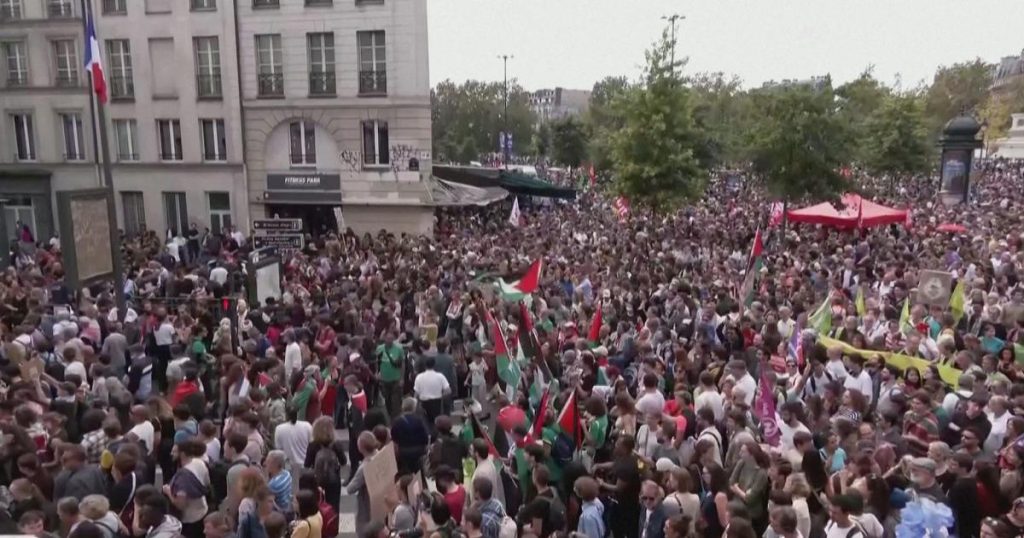A weekend of turmoil is looming in France, where student movements have organized about 150 protests across the country to protest President Macron’s “power grab” in choosing Michel Barnier as the new prime minister. This comes after Barnier’s first public television interview since taking office, where he stated his intentions to roll up his sleeves and get to work. The protests have been organized by youth organizations and have gained support from leftist groups and some unions and associations. Demonstrations are taking place in cities like Paris, Strasbourg, Lyon, Nantes, and Bordeaux.
The choice of Michel Barnier, a former EU mediator for Brexit, as prime minister has sparked criticism from groups such as the Insoumis, who see it as a denial of the electoral results. The Socialist Party has not officially announced its participation in the protests, but some local sections are expected to join. A survey shows that 74% of the French population believes Macron did not consider the election results in appointing Barnier. Despite criticism, Barnier has expressed his intention to form a government that includes members from both right and left-wing political parties, emphasizing the need for dialogue and compromise.
Rassemblement National leader, Jordan Bardella, has stated that Barnier’s government should take into account the concerns of his party, as they hold a significant number of seats in Parliament. Plans for the formation of the new government are in progress, with Barnier already appointing his chief of staff, Jerome Fournel, a former director general of public finances. Barnier is engaging in consultations with political leaders and stakeholders, including visits to hospitals and meetings with former prime ministers. The political landscape in Parliament is complex, with various parties and alliances positioning themselves for potential votes of confidence and support.
Barnier has reiterated his commitment to listening to the concerns of the French people and working towards addressing issues such as public services and economic stability. His choice of chief of staff signals continuity with previous administrations, as Fournel brings experience in financial management and negotiations. The political dynamics in Parliament are shaping up, with parties outlining their conditions for support and potential reactions to the new government. As Barnier continues to engage in consultations and negotiations, the French public watches closely as developments unfold in the political arena.


